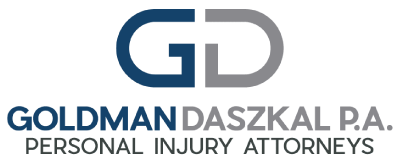You’re driving along, minding your own business, when suddenly another car slams into yours. In the chaos that follows, and while dealing with insurance claims and repairs, one of the biggest concerns on your mind is likely: Who’s going to foot the bill for all these medical expenses?
When it comes to medical bills after an auto accident, the responsibility can be complex and varies depending on several factors. Let’s break it down:
Your Own Insurance
First and foremost, your own insurance policy can play a significant role in covering your medical expenses. If you have Personal Injury Protection (PIP) or Medical Payments (MedPay) coverage as part of your auto insurance policy, these coverages can step in to pay for your medical bills, regardless of who was at fault in the accident.
PIP typically covers a broader range of expenses, including medical treatment, lost wages, and even childcare costs, while MedPay focuses solely on medical expenses. Check your policy to see what coverage you have and the limits of that coverage.
Health Insurance
If you don’t have PIP or MedPay coverage, or if your medical expenses exceed the limits of these coverages, your health insurance policy can come into play. Your health insurance provider will cover your medical bills according to the terms of your policy, including deductibles, copayments, and coverage limits.
Keep in mind that if your health insurance provider covers your medical expenses, they may seek reimbursement from any settlement or judgment you receive from the at-fault party’s insurance company through a process known as subrogation.
At-Fault Driver’s Insurance
If another driver caused the accident, their liability insurance should cover your medical expenses. In most cases, this involves filing a claim with the at-fault driver’s insurance company. However, the process can sometimes be lengthy, especially if liability is disputed or if the at-fault driver is uninsured or underinsured.
Medical Liens
In some cases, especially if you don’t have sufficient insurance coverage or if the at-fault driver is uninsured, medical providers may agree to provide treatment on a medical lien basis. This means they agree to delay billing you until your personal injury case is resolved, with the understanding that they will be paid out of any settlement or judgment you receive.
Out-of-Pocket
If you lack adequate insurance coverage and cannot reach a settlement with the at-fault party, you may be left to cover your medical expenses out-of-pocket. This can be financially burdensome, so it’s essential to explore all available options for compensation.
Dealing with medical bills after an auto accident can be overwhelming, but understanding your options can help alleviate some of the stress. Whether it’s through your own insurance, health insurance, the at-fault driver’s insurance, or other means, there are avenues available to help you cover your medical expenses and get the treatment you need to recover from your injuries.
Remember to document all medical expenses, keep thorough records of communications with insurance companies, and consider seeking legal guidance from experienced personal injury attorneys like Goldman Daszkal. They can help navigate the complexities of insurance claims, negotiate with insurance companies on your behalf, and ensure you receive the compensation you deserve.
In the aftermath of an auto accident, prioritizing your health and well-being is paramount. By understanding who pays for medical bills after an auto accident, you can focus on your recovery with the peace of mind that your medical expenses are being addressed.
